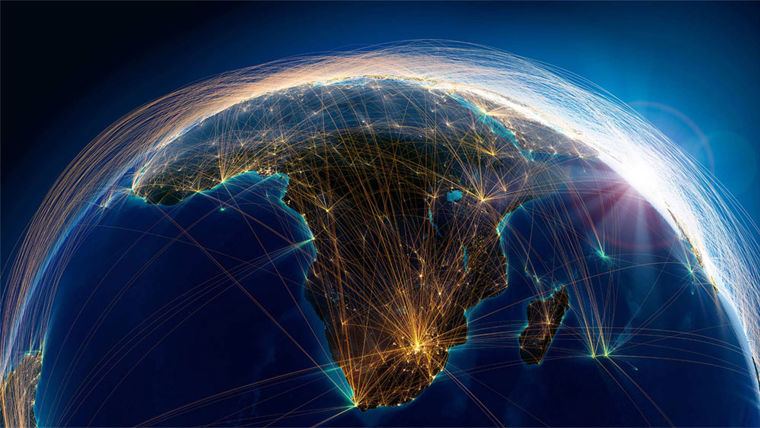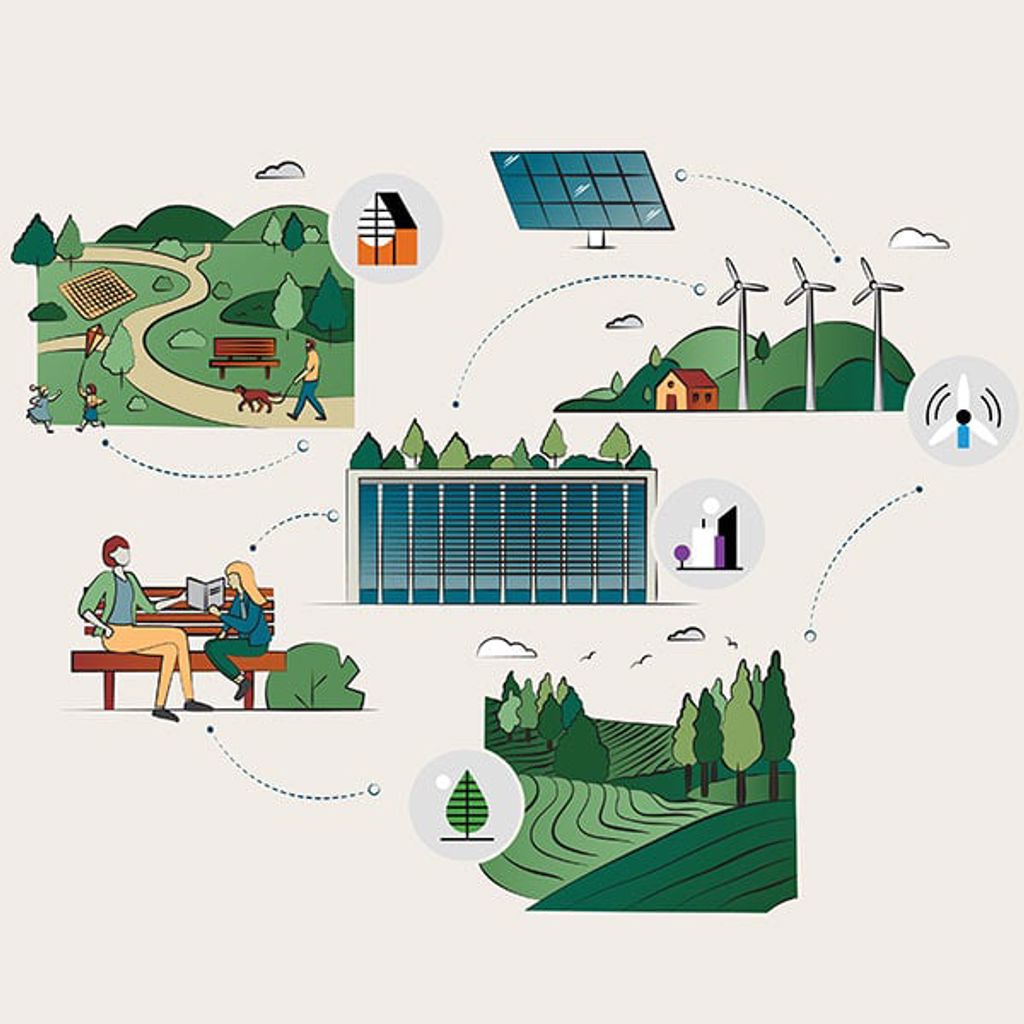How data center development can drive economic and social development
Demand for data centers is growing across Africa. But how can these resource intensive assets - with the stresses they place on stretched water and energy facilities - both become more resilient and align with the needs of local communities' development goals and challenges?


Shikar Takurpersad
Associate Director
Last updated: October 2022
Data center development is a growing economic phenomenon across Africa, driven by the continent’s appetite for digital and cloud services.
To meet growing demand and bring the rest of the continent on par with the capacity and density of South Africa, Africa needs 1000MW and 700 facilities. A new report from The African Data Centers Association (ADCA) and Xalam Analytics claims the total number of edge locations by international network and content providers in Africa is close to 300 and growing by about 10% a year.
Like any other infrastructure system, the development of data centers has impacts on the cities and places that host them, both as a significant new land use, as well as through how they interact with other systems and services. In Africa, as elsewhere, these impacts have largely focused on constraints, with understandably common concern about how data infrastructure places additional burdens on already stressed energy and water systems.
While certainly valid concerns, the evidence is that data centers are rapidly improving their use of water and energy. In fact, research from Science states that between 2010-2018 there was an increase of 550% in the amount of computing done in data centers, however the amount of energy they consumed in that time only increased by 6%. Further efficiency is being continuously driven by investments in R&D by major data center developers.
Given that local demand for data centers will inevitably continue to drive their growth and proliferation, we asked ourselves how African communities, policymakers, and cities can partner with this sector to realize meaningful impacts that align with their own development goals and challenges, rather than meet it with blanket resistance.
Data center as a development stimulus
Our partnerships with a range of tech firms over the last decade have shown that data center development can create parallel opportunities for realizing social and economic value; essentially positioning data centers as catalysts for development. It’s a virtuous circle for data center owners, as taking this community-focused approach supports their social license to develop and operate.
The first task is to identify linkages between the development elements of a proposed data center project and the needs of the community it will join. For many African cities and countries, there are stubbornly high levels of unemployment, high resource extraction dependence, and a lack of resilience to growing climate change impacts. Against this backdrop, we can identify a number of opportunities; structured within the delivery patterns of where, with whom, and how data center development happens in Africa.
Research from Science states that between 2010-2018 there was an increase of 550% in the amount of computing done in data centres, however the amount of energy they consumed in that time only increased by 6%.
Shikar Takurpersad
Associate Director, Arup
Unlike in other more developed regions, data center development in Africa often happens on greenfield sites on the outskirts of cities, where connectivity is still optimal, but where large development parcels are in ready supply. This locational aspect presents data center developers with an opportunity to address issues with local energy, water, and waste around the data center. They often have space to reuse heat generated by data center operations in specialized ‘tunnel agriculture’ that extends the growing season and boosts agricultural productivity. Waste management is often located nearby, creating the potential for direct waste-to-energy generation.
The availability of nearby vacant land can also accommodate larger-scale renewable installations, including solar and micro-hydro solutions, to provide data centers with part of their energy needs, making them a considerate neighbor in areas where ‘load shedding’ (rolling blackouts) is still a fact of life. Big tech firms are understandably eager to develop new, local, renewable energy capacity to meet their data centers’ power needs, and such ideas can be emulated in Africa.
Integration into the community
There are other ways that data centers can become harmonious parts of an existing community, by focusing on mutual benefits. One idea is to plan urban residential developments so that they include rooftop solar energy generation for residents, with surpluses sold directly to data centers. Another possibility is to take waste heat as energy for heat pump systems to provide district cooling. Or you could co-locate data centers alongside intensive daytime industrial energy users to create win-win producer-consumer relationships where both parties share renewable energy.
Local economic stimulus
Every time a data center gets built, there’s a procurement and sourcing opportunity that the local economy can benefit from. Of course, many internal components of data centers are specialized, proprietary, and remain closely guarded commercial secrets. But there’s a larger proportion of distributive, protective, and organizational elements that are usually made from commonly available materials. By mapping data center component supply chains and identifying those elements that can be produced locally, this can be a powerful instrument in supporting local economic development and, in the longer term, potentially reducing cost and time delays for DC developers.
Local employer
Data centers are typically sizable buildings on large sites and include elements of landscaping, screening, paving, and earthworks. There is plenty of scope to provide relevant local labor opportunities in their development, construction, and ongoing operational support.
Connecting local skills and indigenous knowledge
Data centers in hotter climates, like much of Africa, are less developed as a typology than in cooler climates where the vast majority of data center development has been located. Local knowledge in adapting to and harnessing climatic conditions can be a key resource for developers. Africa has a long tradition of using thermal mass and earth structures to reduce heat gain, which may provide valuable clues for climate-adapted data center building and site selection strategies. In addition, a variety of building design and site development climate-responsive methods can be incorporated to give a data center a locally appropriate climate skin without impacting its functionality.
Part of a just transition
The shift away from fossil fuels and carbon-emitting industries poses some threats to African countries. They can already anticipate significant job losses in mining and fossil fuel energy sectors. Finding new roles and careers for workers in these sectors is central to a ‘just transition,’ one that doesn’t leave communities behind. Some skills in these sectors will be transferable and could drive local data center adaptation and development. Extreme deep-shaft mining in South Africa and other countries has led to innovative cooling practices that are now global best practice. The skills and deep experience that drove these innovations can be repurposed in data center development.
A driver of the future
We believe that any mix of these interventions and commitments will both accelerate the data center industry’s commercial development in Africa while strengthening community support and participation in that growth.
To achieve these wider goals, data center industry leaders need to work in partnership with local and regional authorities, private property developers/land assemblers, and community leaders to define data center developments that resonate with a place and its hopes for the future. In time, we could see this enlightened approach emulated back in the Global North, where data center projects also need to remain great neighbors and truly sustainable businesses.
Get in touch with our team
Insights
Explore more data centre insights
The future of data centers: how is the industry changing in the AI era?

Circular thinking for data centers

Nature and technology: balancing data centres with biodiversity

The good neighbour theory: how data centers can strike a better balance between technology, community and nature


